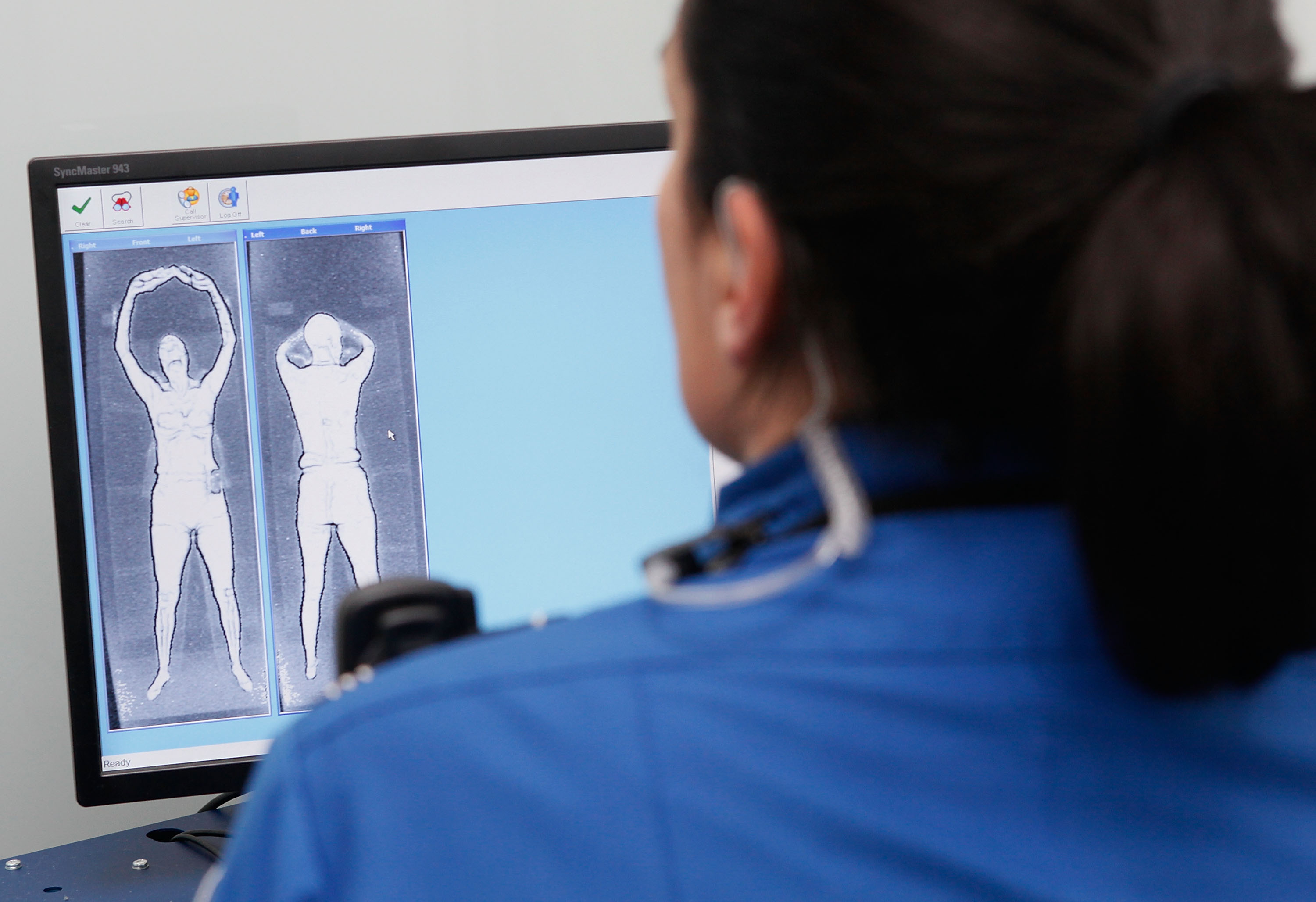A TSA worker with the monitor for the full-body scanner at O’Hare International Airport in Chicago. (Scott Olson/Getty Images)
A mother is suing the Transportation Security Administration (TSA) after officials tried to strip search her trans daughter at airport security.
The alleged incident happened in May 2019 when Kimberly Erway tried to take a flight with her 15-year-old daughter, Jamii, according to CNN.
The pair were flying out of Raleigh-Durham International Airport, in North Carolina, when a TSA body scanner indicated a “false positive” as Jamii went through airport security.
This means that the body scanner machine wasn’t registering Jamii as female, despite the TSA officer operating the scanner choosing the “female” gender option for her based on how she looks. When Jamii told the operator that she was trans and asked for a re-scan with the “other” gender button chosen, the TSA employee refused and called a supervisor, according to the lawsuit.
According to her mum’s lawsuit, “Jamii frequently has to deal with false positives when she flies” and TSA “receives complaints from transgender individuals regarding” the issue regularly.
A supervisor arrived and told Jamii she would need to go through a strip search in a nearby room, and wouldn’t be allowed to leave airport security until she complied. The supervisor told the person who’d been operating the body scanner that they should “force Jamii to submit to the strip search”, the lawsuit says.
When Jamii refused, the TSA supervisor called the police. But when he arrived, the police officer said he would not help the TSA employees detain the teenager, and Jamii and her mum were able to leave the airport. Kimberley rented a car and the two of them drove 600 miles home, instead of flying.
Kimberley’s lawsuit is seeking an unspecified financial sum in damages for the emotional distress inflicted on her daughter related to the alleged violation of Jamii’s fourth amendment rights against unreasonable searches, and an injunction that would prevent the incident from happening again.
“Jamii would like to be able to fly again,” her lawyers argue, “and an order from the Court that would ensure that Jamii would never encounter the situation described would assist in reducing the recurring emotional distress that currently prevents her from doing so.”
Strip search complaint one in a long line against TSA treatment of trans passengers
The TSA has frequently come under fire for their binary scanning technology and officers lacking awareness of trans issues.
Trans people can face invasive searches by the TSA in airports, with multiple allegations being made that TSA officers have required passengers to show their genitals in order to board a flight. TSA officers are not supposed to let passengers remove their underwear in front of them.
A ProPublica investigation in 2019 into the treatment of trans passengers by the TSA found that five per cent of civil rights complaints against the TSA related to the treatment of trans passengers, despite trans people making up less than one per cent of the US population.
Jenny Burke, the TSA’s press secretary, previously said that airport screening is done “without regard to a person’s race, colour, sex, gender identity, national origin, religion or disability”.
TSA’s website says the agency “recognises the concerns that some members of the transgender community may have with certain security screening procedures at the nation’s security checkpoints.
“TSA is committed to ensuring all travellers are treated with respect and courtesy. Screening is conducted without regard to a person’s race, colour, sex, gender identity, national origin, religion or disability.”
